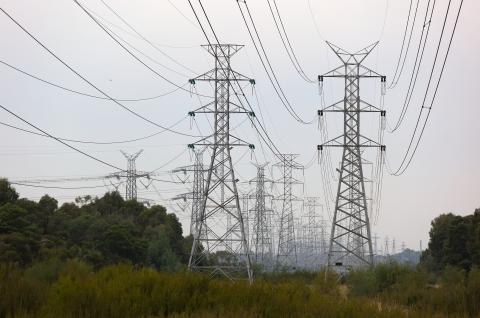Increasing state government accountability: Financial transparency is key
Download Briefing Note
View Press Release

Key Findings
According to the recommendation of the 15th Finance Commission, states are required to maintain their fiscal deficit within 3% of their Gross State Domestic Product, and an additional fiscal deficit limit of 0.5% is allowed if reforms are undertaken in the power sector. In FY2025, the combined fiscal deficit of Indian states was 3.2%, with 11 states exceeding the 3% limit.
Energy—the sixth largest sector—accounts for around 5% of state spending, most of which goes towards subsidies and grants for DISCOMs. Yet, a sustainable business model remains elusive, eroding state accountability, and resulting in mounting losses and debt.
Subsidies should be limited to the power sector, unless coupled with reforms that address structural issues leading to technical, commercial and financial losses in DISCOMs. All state debt should be accounted for on the state’s balance sheet and funded on time.
Consolidating all DISCOM lending and other support—including loan guarantees, bailout packages, grants and subsidies—while ensuring timely reporting of data and accounts can bring in greater transparency and strengthen accountability.
The Sixteenth Finance Commission (FC-XVI) was constituted to make recommendations on three matters: The share of tax revenue between the central and state governments; the governance of grants-in-aid from India’s consolidated funds to states; and the allocation of resources for various measures at the Panchayat and Municipality levels. The Finance Commission’s role has become especially critical as large economies compete to reshape the rules of global trade.
The significant disparity in the economic development and financial health of states means that fiscal equalisation is essential to achieve balanced and inclusive goals. In this context, the design of fiscal transfers from the Centre to the states plays a pivotal role. However, the Finance Commission must also prioritise the quality of public expenditure, sound fiscal management, and regional and local development.
One of the key mandates of the Commission is to review the finances, deficit, debt and fiscal discipline of the Centre and the States, and recommend a roadmap for sound fiscal management, guided by the principles of equity, efficiency and transparency. In order to boost economic growth and channel public investment, it is necessary that government expenditure adhere to the letter and spirit of the Fiscal Responsibility and Budget Management (FRBM) Act, 2003 (as amended in 2018).
The fiscal deficit limit for states has been set at 3% of the Gross State Domestic Product (GSDP), as per the recommendation of the 15th Finance Commission. State government exposure to the power sector is capped at 3% and an additional fiscal deficit limit of 0.5% is allowed if reforms are undertaken in the power sector. IEEFA’s analysis shows that for some states, the exposure is much higher if we consolidate the debt and other financial supports, including subsidies and grants received under government initiatives and schemes.
IEEFA’s earlier recommendations were submitted and considered in the Fifteenth Finance Commission Report. This note is the second in a series on how state power continues to receive funding from the government and is breaching the mark. It also underscores the need for parallel improvements in the operational and financial performance of power DISCOMs.


















